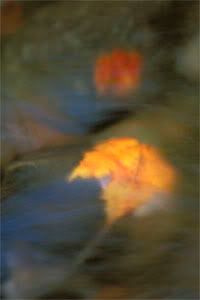For them, we gladly imitate animals
like those in corporate zoo.
Here a mindless monkey leaping
desperately, trapped in a urban cage.
There a grumpy duck stuck
between frozen lake and uncertain sky.
But why won’t they come?
If they want, we can even be more outrage,
just try us. Watch me pee
right here, right now -
the world is my private loo.
Perhaps now we have their full attentions?
Are we not expressive enough?
But still why won’t they come?
Maybe they are ashamed
of how others might perceive them.
Or maybe they’ve chosen
to be temporary blind.
They do have a choice you know.
But wait! An audience – a child,
sitting alone at the edge of reason.
Watching her, we held our breath
as if the purpose of our existence depends
solely on this little girl.
She yawns.
By Alson Teo
Afterthought
Who exactly is my audience?
To a certain degree I am the first audience of my poems. I don’t mean the ‘I’ as the author but the ‘I’ as a reader. And to do this I need to step out of myself and disconnect emotionally from my works. Although that is important, what I am more concern is whether my poems are able to communicate with you, my intended audience.
But frankly as an author you do have a choice. For example if you wish to expand your audience's base, no point using words that only university graduates will understand. A couple of these words are fine but if the average readers need to refer a dictionary with every line, you might one to consider using simpler words.
I want to share with you an extract from
INTERLOGUE, Studies in Singapore Literature, Volume 2: Poetry.
Mr Kirpal Singh* a respected poet both in Singapore and overseas, in the Introduction section commented that Mr Boey Kim Cheng
“ …writes from deep within, without compromise. His poems go down very well with academics and scholar-critics but not, I am told, with the general readers. His is a learned poetry and demands perhaps more of the contemporary reader’s time and effort. Does this mean that poets like Boey have lost their relevance? Or does it mean that readers today are less sophisticated or less discriminating? Boey Kim Cheng, like Yap, is reserved both in manner and person, and his poems while drawing one in, also let one out. Hence the complications.”
Frankly you don’t need a dictionary to read Boey’s poems. What you do need is some patience and perhaps as suggested by Mr Kirpal Singh, free time and efforts.
The thing is I am not a sophisticated reader. I just want to be entertained. I don't want to spend my time guessing what the author is trying to say. I want to feel the author’s heartbeats. I want to shout “Wow!” and yet be speechless at the same time because of what I've read. I want to cry and laugh with the poems. I am a greedy reader. I want to feel all these after my first attempt, okay lah, maybe after the second attempt.
I am not a sophisticated reader. If I want to read serious writings, I'll get myself a newspaper.
* Mr Kirpal Singh is the General Editor of
INTERLOGUE and Editor of the first 3 volumes in the Series. He is internationally recognized both as a scholar and creative writer.





